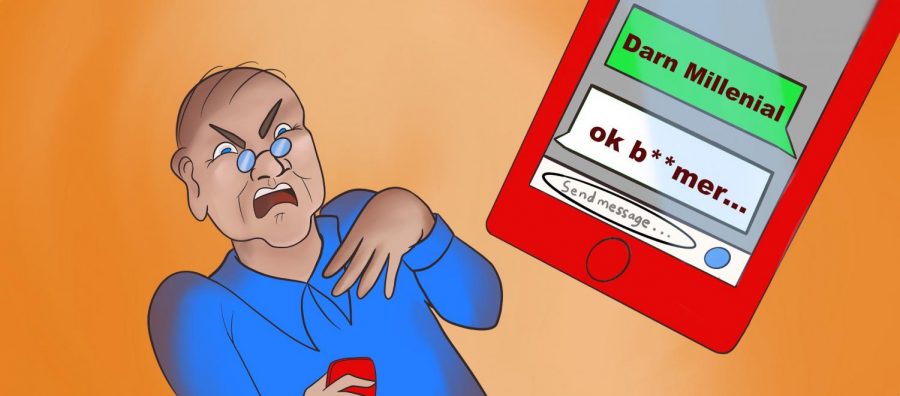OK Boomer: It’s not the ageist N word
November 14, 2019
We see it everywhere on the internet. A baby-boomer joke that’s transphobic? “OK, boomer.” Climate change is fake? “OK, boomer.” “OK boomer” was even used as a retort towards a heckler during a New Zealand lawmaker’s address to Parliament.
It started as a joke, but now Baby Boomers and Gen X individuals are claiming “OK boomer” is the N-word of ageism. Some workplaces are even banning the use of the phrase. According to Joseph Sirbak, Labor and Employment attorney, “OK, boomer” represents “age-based hostility” against those born in the boomer generation and could support a lawsuit under the Federal Age Discrimination in Employment Act.
Used when older people are being unreasonable or illogical towards factual evidence, “OK, boomer” has become the catchphrase of Gen Z, the youngest of the generations now entering the professional workforce.
Generations are a subdivision of cultural diversity. Each generational cohort—Baby Boomers, Gen X, millennials, Gen Z—are influenced differently by various events. For example, some baby boomers were teenagers during the Vietnam War and many of them were responsible for protesting the war.
Many people believe that the phrase is dividing generations dramatically, especially those belonging to the older generations. Yet really, the phrase is just another facet of the repetitive cycle of generational dispute.
Teenagers and young adults have historically rebelled against their parents. The boomers themselves rebelled against theirs to gain the right to vote during the antiwar movement of the early 60s.
“OK Boomer” is being used socially much more frequently than it is used in the workplace. And even if it is in the workplace, the people using it belong to the youngest generation at work. Without seniority, how will younger workers oppress older ones by using a phrase?
As for the phrase being the equivalent of the N-word—it’s not. The N-word was used to systematically oppress black people in America and around the world for centuries. Fifty years ago, people were using it to discriminate violently. Black people were being murdered and called the N-word. “OK boomer” is not used to oppress older people.
Overall, “OK boomer” is a meme, not a slur. Older folks aren’t oppressed by the phrase. Young adults have rebelled against their parents and now isn’t any different, OK boomers?




















